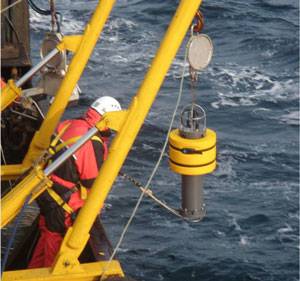Fugro Renewables Measures Underwater Noise
Teaming up with JASCO Applied Sciences, Fugro, an underwater acoustics company, is now providing measurement of underwater noise and allied consultancy. The new service will be launched at RenewableUK Offshore Wind 2010 (Liverpool, 29-30 June).
The measurement of underwater noise, created during construction and operation of wind farms and tidal turbines, is an important component of any EIA and is vital to ensure the safety and longevity of marine wildlife and ensure compliance with licensing requirements. The issue of underwater noise is becoming an increasingly important indicator in the UK Government’s legislated drive towards achieving “Good Environmental Status”, following the publication of the European Marine Strategy Framework Directive.
“This new partnership brings a number of key advantages to the marine renewable energy industry and can be used by the wind, wave and tidal sectors,” said Mark Calverley, Consultancy Director of Fugro GEOS. “Both organizations already have established track records within these sectors. By combining our extensive experience and expertise in technical system deployment, we are able to introduce cost-efficiencies, by offering a ‘one-stop’ solution.”
As Robin Burns, Director of JASCO Applied Sciences (UK) explained: “JASCO has worked with several legislators around the world to support development of appropriate regulatory guidelines for addressing noise-related concerns. At the same time, we can assist renewable energy developers through provision of empirical assessments of their projects to ensure compliance with all regulatory requirements relating to underwater noise.”
Advantages to this joint approach include the ability to conduct pre-piling acoustic impact assessment including use of bubble-curtain mitigation; construction phase calibrated noise level measurements; and post construction acoustic recording that not only assesses overall noise contribution from the operational wind or tidal scheme, but may support studies to confirm the return of pre-existing mammals and fish stocks.










